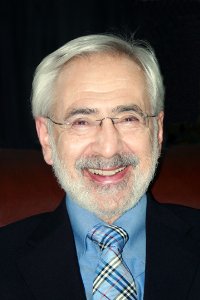Bridging and Awareness
Mourn the Passing of Our Potential

 Family income has always remained one of the main factors affecting academic achievement. Not only are low-income families at a disadvantage in terms of accessing high quality education, their children also tends to be the most underrepresented in educational programs. This results to a high percentage of youth who are not able to even grasp the chance to develop to their fullest potential.
Family income has always remained one of the main factors affecting academic achievement. Not only are low-income families at a disadvantage in terms of accessing high quality education, their children also tends to be the most underrepresented in educational programs. This results to a high percentage of youth who are not able to even grasp the chance to develop to their fullest potential.
While many envision education as the absolute equalizer, this idea has rather become a myth than a reality today. As can be observed, there is substantial difference in achievement and cognitive performance between the rich and the poor. This does not only contribute to the growing stratification in who goes to and finishes college but also serve to further perpetuate the disparity between the rich and the poor.
One prime cause of the youth being unable to reap the most of their capabilities is opting out on college education. There are even high-achieving students who choose to leave out the experience of discovering countless resources and bright peers in the illustrious facilities of colleges.
Initially, you will be quick to think that it’s because their families cannot afford the advanced education and requirements. Although such is true to some extent, there are still many elite colleges who would love to offer free education to top undergraduate achievers under the impression that high school achievers from financially-deprived families are often the most hardworking and experienced youths out there.
So why don’t poorer top students give themselves a chance to hold acceptance letters from elite institutions?
- Insufficient guidance from public high schools
Other than the issue of financial capability of the families of students, there’s also the issue concerning the counseling capacity of public high schools. Usually, students obtain information about in-state colleges from their respective counseling offices. However, with the student population of public schools, counselors are almost always overstretched. Scheduling for one-on-one meetings usually comes a challenge and even when a student does get one, he or she still cannot be assured of being suggested refined college options. All too often, counselors remain uninformed, with some even steering students away from the option of studying in elite institutions.
- Insufficient guidance from family
Without adequate school counseling, students then subsequently consult with their families. But family guidance also varies greatly by social class. Families where nobody has ever attended college before tend to view all college degrees and educational institutions as equal.
- Lack of confidence
A lot of top students who came from poor families fears studying at prestigious universities because of low confidence. Common concerns include top colleges being too academic or too intense that they won’t anymore have time to enjoy their social life. For others, distance is the reason, with majority elite institutions being out-of-state.
- Clueless about financial aid
Because of the lack of access to information, many students remain clueless about existing financial aids offered by good universities. All too common are families who would have qualified for assistance but were misinformed that they didn’t anymore consider it an option.
What can be done?
For starters, institutions should at least ensure that the students and their families are given the necessary tools to stay informed college consumers. The fact that there is a need-based financial assistance designed specifically for the families across the socioeconomic spectrum should be made widespread.
Although there are organizations, colleges and initiatives pursuing good educational assistance strategies, the United States in general has yet to assume a more systematic approach. Unless this is done, students who might have had bright futures will remain slipping through cracks.

Why How? Looking Outside Your 1% Bubble

Financial comfort is one step up from knowing that you possibly can make it through difficult times. Once you have attained financial comfort, what’s most likely to set out is the temptation to create your own comforts and conform to the system because it seems that the system is finally working for you.
By falling into the trap of financial comfort, you start buying more, wasting precious hard-earned money on affordable short-term entertainment and disposable commodities. Many end up squandering the products of their hard labor, thinking that what they are spending are “extras” anyway. After shelling out a few hundred on brand new clothes, if the math still looks good, there’s a vacation to consider, a brand new car and many other good things that money can buy.
Upholding financial comfort while avoiding to become a victim of consumerism is, without a doubt, difficult. Our culture has simply been set up in a way that enforces and further encourages mindless spending. Everyone is made to think that they have to be the prettiest at their high school reunions, that they have to always keep up with their new found friends, or that they have to give every single thing their children ask for. All of these are false and are actually only distracting people from the fact that the whole game is fixed and that nobody is supposed to really win.
As harsh as it may sound, you are not supposed to be rich. But if you do reach the stage, it is crucial that you do not give up. Don’t fall into the traps of comfort. Most importantly, don’t give in to the numbing repeat thoughts that you can stop now or that you have to get yourself a reward all the time. Else, you can stay caught until God-knows-when. And with your money continuously burning, you’ll eventually end up to where you first started, or worse, hungry and in debt just for the lifestyle you have grown accustomed to.
So What Should You Do?
Enjoy the things you have.
A lot of people are so caught up with getting the life they want that they fail to notice each passing day of their lives. Many of us eat in front of the television, commute without looking at each other and spend summers wishing for another week off to spend.
If you are one of the lucky ones who no longer have to worry about making ends meet, then learn to enjoy what you have. Help your relatives, your neighbors or friends. Make time for yourself and for everyone you love. Visit new places and go out for an adventure. Instead of spending your money trying to impress other people, why not invest in projects that can benefit your community? This way, you are building wealth in every sense of the word.
Keep in mind your financial plans.
Find balance between momentary gratification and long-term goals. Reevaluate your lifestyle if you need to. Take into consideration new experiences and learnings as you re-strategize or revision your financial plans.
Always resist consumerism.
With the media culture always promoting consumption, resisting consumerism can be pretty vexing. Our economic principle glorifies consumerism as showcasing rational self-interest. If you refuse to go by the latest fashion, style, car, movie or even color, people will think there’s something awfully wrong with you.
So, to help you in this endeavor, surround yourself with people who value smart spending and simplicity. After all, you are now choosing a path that will stack the decks in your favor in the near future. Find people who, like you, favor minimalism. As much as possible, prevent yourself from buying things you don’t need.

Dr. Stanley H. Block on Bridging and Awareness


Dr. Stanley H. Block
Listen to this exclusive interview with Dr. Stanley H. Block on Bridging and Awareness from the Philippe Matthews Show.






